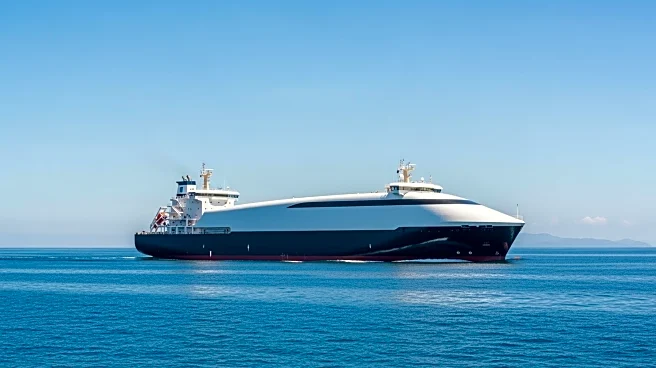What's Happening?
Crowley has introduced its latest Avance Class ship, Torogoz, which began its inaugural commercial service in August 2025. Departing from Port Everglades, Florida, the ship is designed to serve Central America with a capacity of 1,400 TEUs, including
300 refrigerated containers. This service aims to deliver cargo such as apparel, fresh produce, food products, pharmaceuticals, and textiles between the United States and countries like El Salvador, Guatemala, Honduras, and Nicaragua. The initiative is part of Crowley's efforts to enhance trade links and provide efficient cargo delivery services in the region.
Why It's Important?
The launch of Torogoz is significant for U.S. trade with Central America, as it provides a reliable and frequent shipping option for various goods. This service is expected to boost economic ties and facilitate smoother trade operations between the U.S. and Central American countries. Businesses involved in exporting and importing goods such as fresh produce and pharmaceuticals stand to benefit from improved logistics and reduced transit times. Additionally, the inclusion of refrigerated containers ensures the safe transport of temperature-sensitive products, which is crucial for maintaining quality standards.
What's Next?
Crowley's new service is likely to attract more businesses looking for efficient shipping solutions to Central America. As trade relations strengthen, there may be increased demand for similar services, prompting further expansion of shipping routes and capacities. Stakeholders, including exporters, importers, and logistics companies, will be closely monitoring the performance and reliability of this service to assess its impact on their operations.
Beyond the Headlines
The introduction of Torogoz also highlights the growing importance of sustainable and efficient shipping solutions in the logistics industry. As companies seek to reduce their carbon footprint, the use of modern ships with advanced capabilities can contribute to more environmentally friendly trade practices. This development may encourage other shipping companies to invest in similar technologies and services.















